NSYSU Diving Club organizes beach cleanup to protect marine organisms
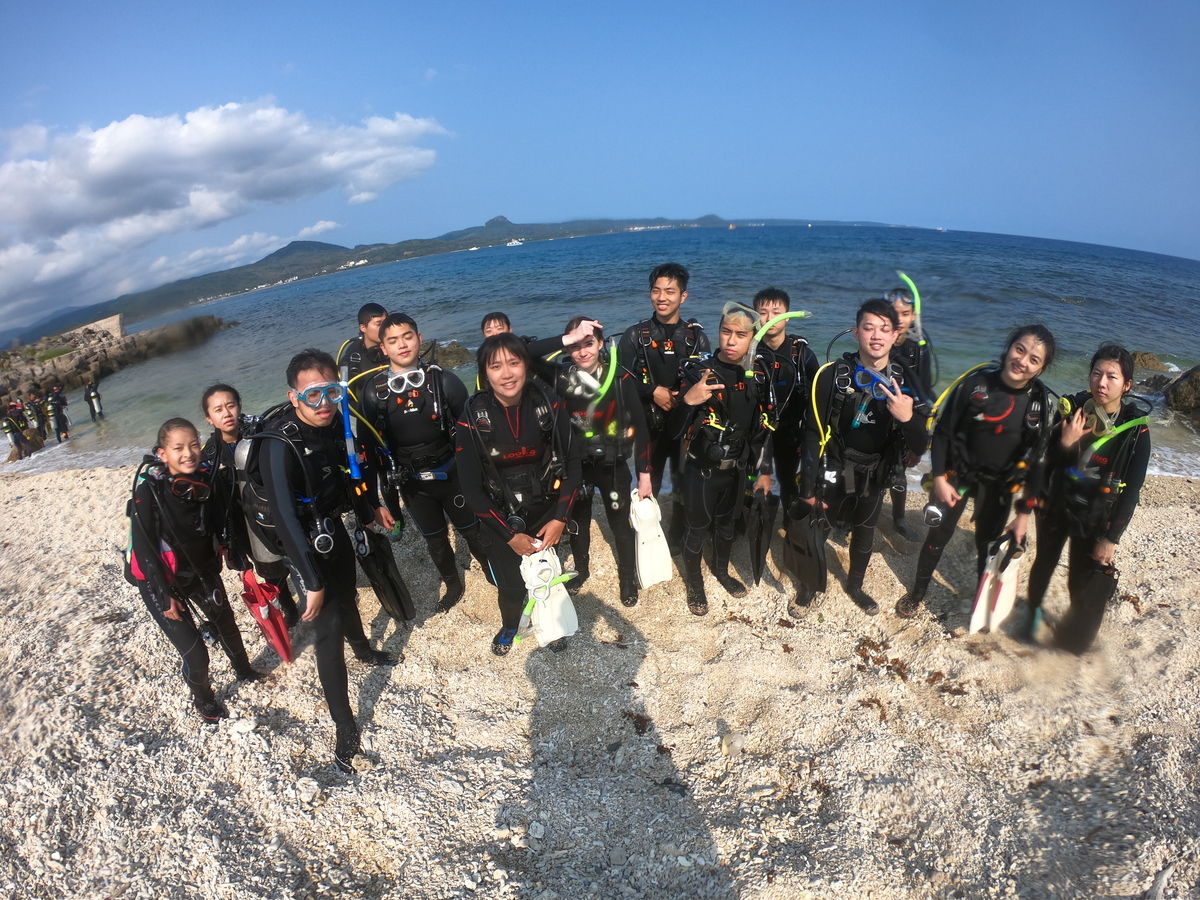
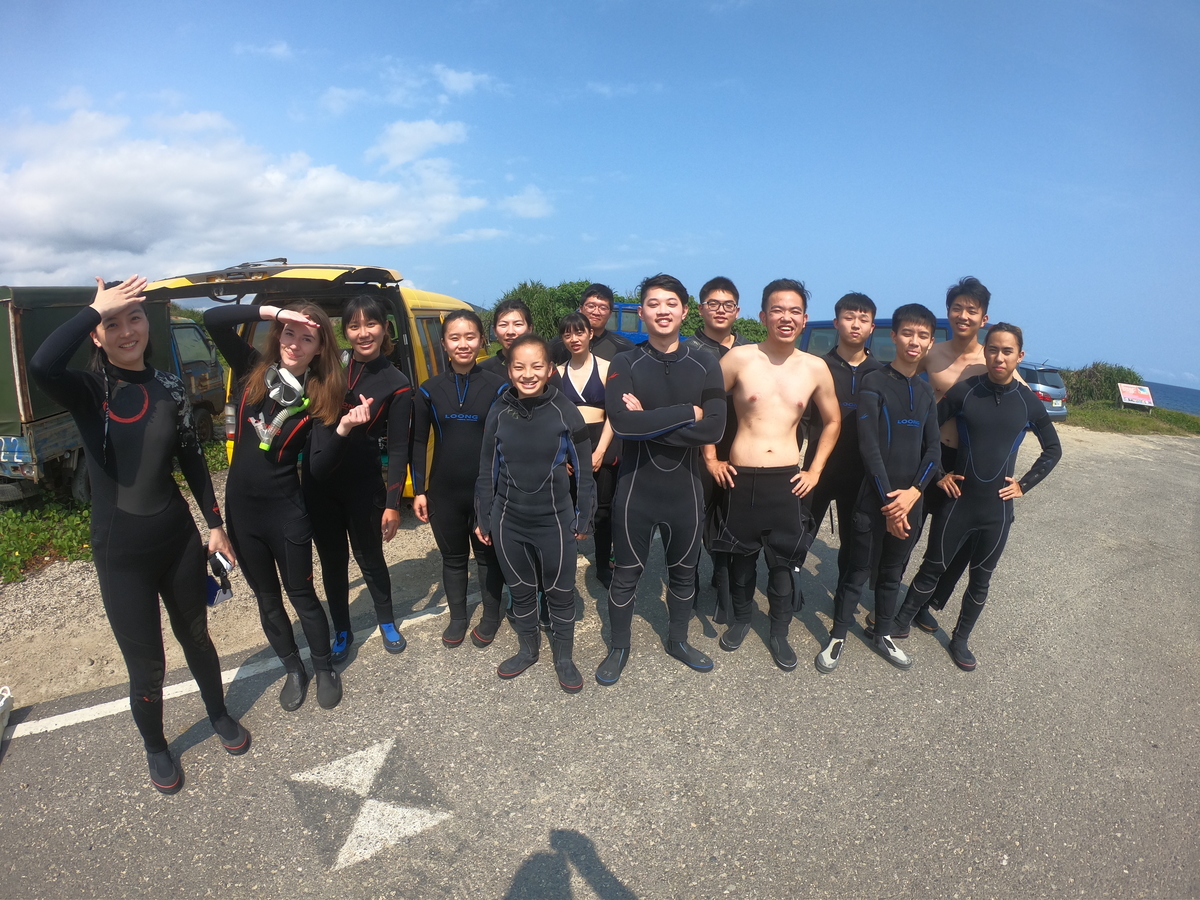
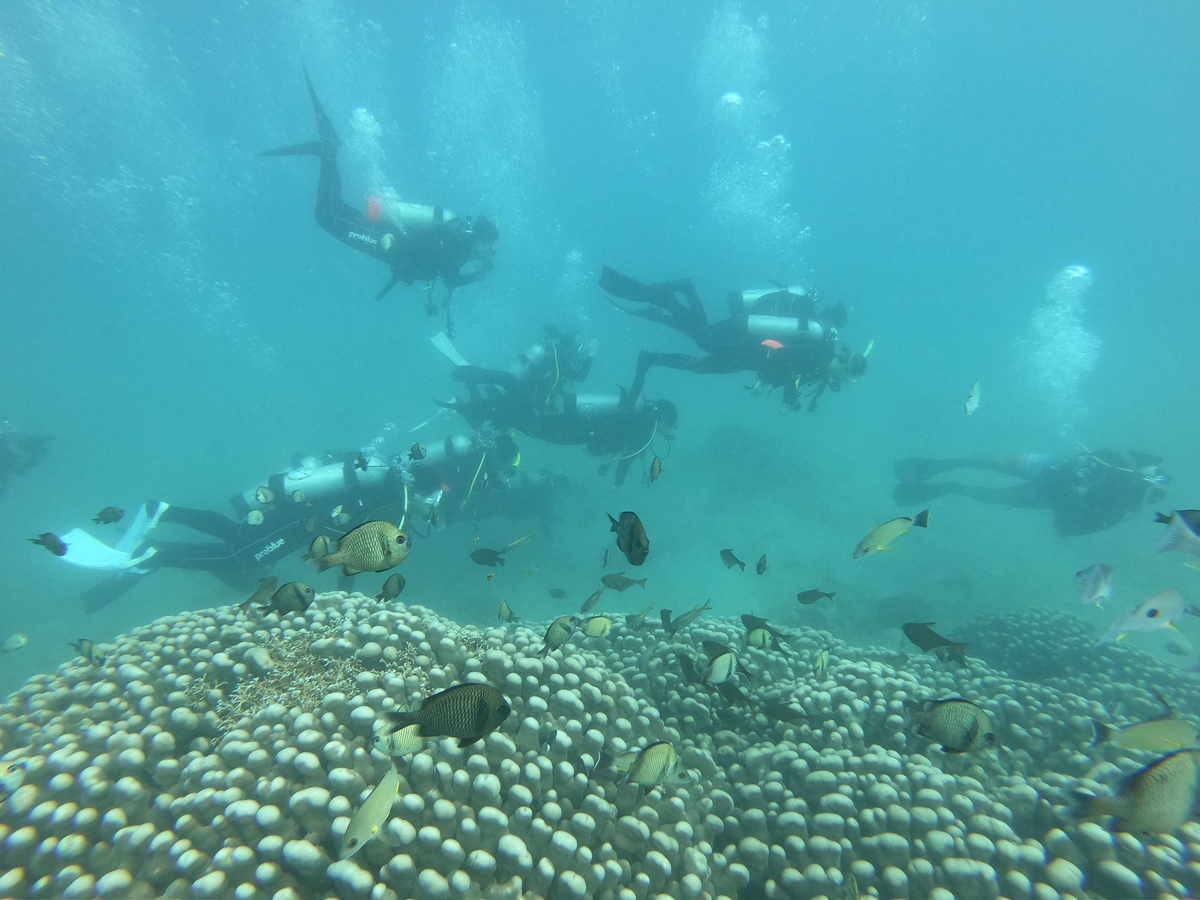
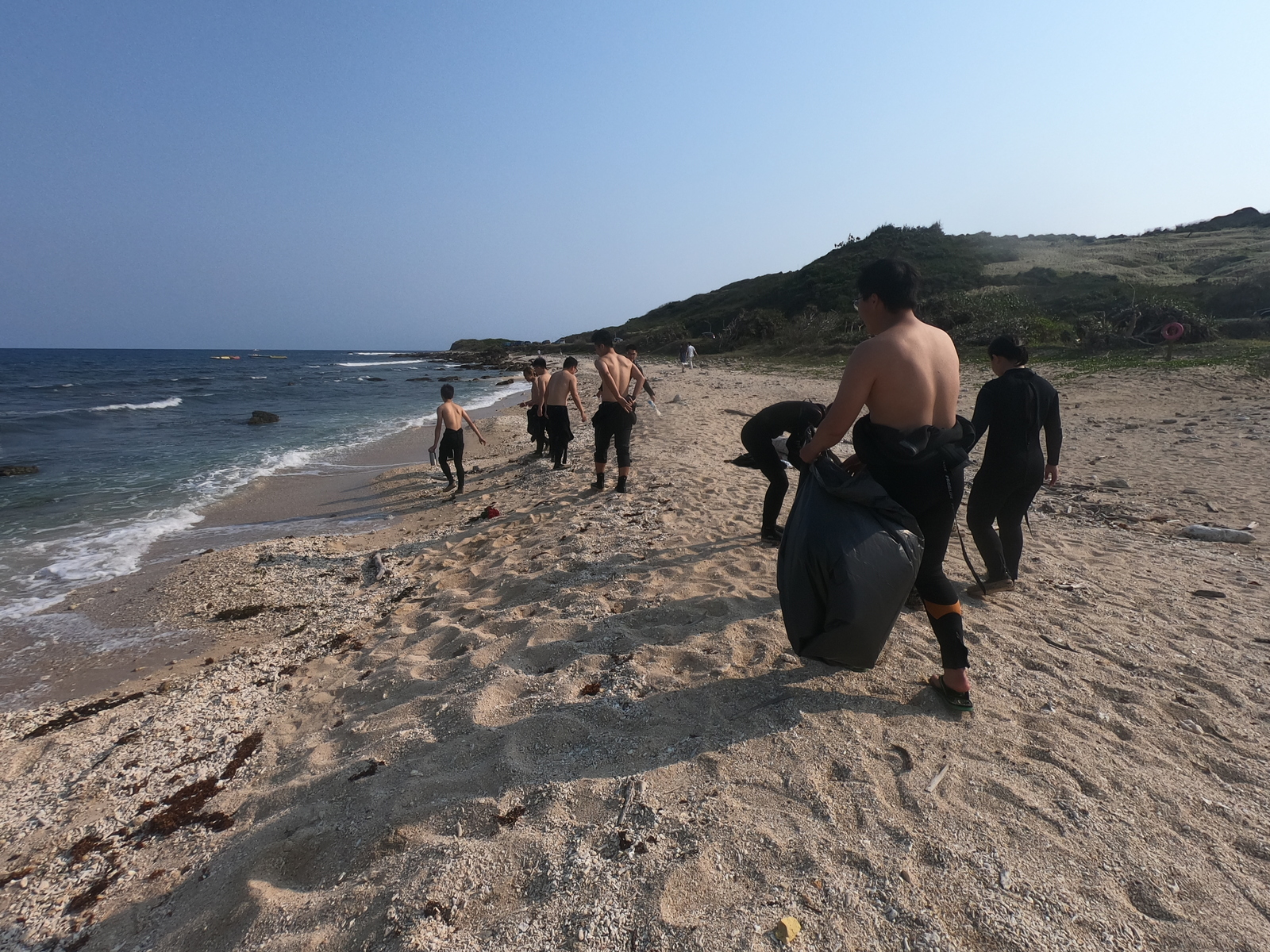
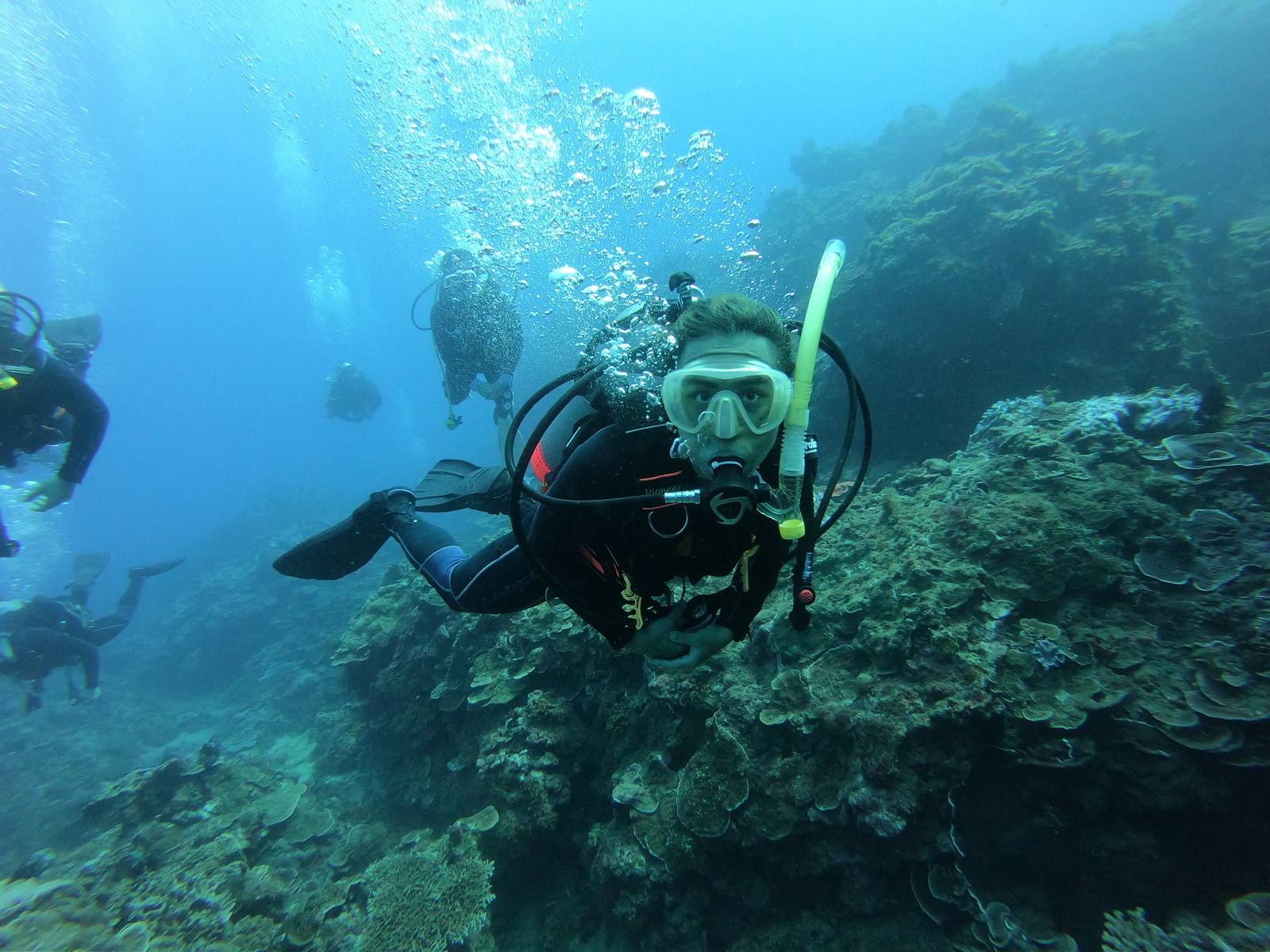
The NSYSU Diving Club organized a beach cleanup event combined with a shore dive around Houbihu on the southern tip of Taiwan, which diverse marine life attracts many divers and snorkelers. After the dive, the participants collected one large bag of trash polluting the beach, preventing the debris from flowing (back) into the ocean. The second day of the outing also included two boat dives in the waters south of Houbihu. This first event of the Club in the new semester allowed new members to get to know each other better while practicing diving skills and working towards a good cause.
During the first day’s shore dive around Houbihu, the divers went down to a maximum depth of 11 meters, where they spotted one marine turtle, a large jackfish and a diversity of colorful fish and corals. After the dive, the participants collected trash polluting the beach: multi-material drink boxes, painted wood, glass bottles and a large amount of plastic garbage: bottles, plastic packaging, straws, residues of fishing nets, even a kickboard. Some plastics would break down when touched and join thousands of tiny plastic fragments on the beach, difficult to find as they blend in with the color of shells and dead coral or get buried under the sand.
The coastlines of Taiwan are heavily polluted with debris, with around 90% of items made of either plastic or plastic mixed with other materials, as shown by the research “Type and quantity of coastal debris pollution in Taiwan”* by Assistant Professor Bruno Walther of the Department of Biological Sciences at National Sun Yat-sen University. Plastics of any size pose a severe threat to marine organisms. “Plastic objects and fragments can cause the injury and death of animals through entanglement and ingestion (…) and eventually break down to microplastics which can enter the food chain directly”, according to the above mentioned research. Photos of sea turtles eating plastic bags or with straws stuck in their noses and stranded marine animals with plastic trash in their stomachs have circulated the internet but the extent of the plastic plague goes far beyond that. “A lot of ocean animals, including corals, are filter feeders: they suck water and its nutrients. If the water is contaminated with micro- and nanoplastics, the corals get polluted. Some studies have shown the negative impacts [of plastics] on their growth and possibly also on their reproduction”, he said.
Plastic pollution, however, is not the only factor that contributes to the poor state of the marine environment. Climate change, ocean warming and acidification, natural disasters, overfishing, and heavy metals pollution play their part, too. “A common mistake is to see all these environmental problems in isolation”, said Professor Walther. “Typhoons become more frequent and stronger because of climate change. Our predictions say that within 20, 30 years, 90% of the coral reefs in the world will be dead because of global warming” he warned.
Note:
The divers were guided by Yi-Huang Chen – instructor of the NSYSU Diving Club and the collaborating PADI certified diving center – Second Stage Diving Center in Hengchun, which provided accommodation and equipment to the Club.
The participants are required to hold an Open Water Diver (OWD) license to join the diving event. Next dates of OWD courses and diving events will be posted on the Club’s fan page: www.facebook.com/NSYSUdivingclub/ .
Research information:
* Walther BA, Kunz A, Hu C-S. 2018. Type and quantity of coastal debris pollution in Taiwan: A 12-year nationwide assessment using citizen science data. Marine Pollution Bulletin 135:862-872.
During the first day’s shore dive around Houbihu, the divers went down to a maximum depth of 11 meters, where they spotted one marine turtle, a large jackfish and a diversity of colorful fish and corals. After the dive, the participants collected trash polluting the beach: multi-material drink boxes, painted wood, glass bottles and a large amount of plastic garbage: bottles, plastic packaging, straws, residues of fishing nets, even a kickboard. Some plastics would break down when touched and join thousands of tiny plastic fragments on the beach, difficult to find as they blend in with the color of shells and dead coral or get buried under the sand.
The coastlines of Taiwan are heavily polluted with debris, with around 90% of items made of either plastic or plastic mixed with other materials, as shown by the research “Type and quantity of coastal debris pollution in Taiwan”* by Assistant Professor Bruno Walther of the Department of Biological Sciences at National Sun Yat-sen University. Plastics of any size pose a severe threat to marine organisms. “Plastic objects and fragments can cause the injury and death of animals through entanglement and ingestion (…) and eventually break down to microplastics which can enter the food chain directly”, according to the above mentioned research. Photos of sea turtles eating plastic bags or with straws stuck in their noses and stranded marine animals with plastic trash in their stomachs have circulated the internet but the extent of the plastic plague goes far beyond that. “A lot of ocean animals, including corals, are filter feeders: they suck water and its nutrients. If the water is contaminated with micro- and nanoplastics, the corals get polluted. Some studies have shown the negative impacts [of plastics] on their growth and possibly also on their reproduction”, he said.
Plastic pollution, however, is not the only factor that contributes to the poor state of the marine environment. Climate change, ocean warming and acidification, natural disasters, overfishing, and heavy metals pollution play their part, too. “A common mistake is to see all these environmental problems in isolation”, said Professor Walther. “Typhoons become more frequent and stronger because of climate change. Our predictions say that within 20, 30 years, 90% of the coral reefs in the world will be dead because of global warming” he warned.
Note:
The divers were guided by Yi-Huang Chen – instructor of the NSYSU Diving Club and the collaborating PADI certified diving center – Second Stage Diving Center in Hengchun, which provided accommodation and equipment to the Club.
The participants are required to hold an Open Water Diver (OWD) license to join the diving event. Next dates of OWD courses and diving events will be posted on the Club’s fan page: www.facebook.com/NSYSUdivingclub/ .
Research information:
* Walther BA, Kunz A, Hu C-S. 2018. Type and quantity of coastal debris pollution in Taiwan: A 12-year nationwide assessment using citizen science data. Marine Pollution Bulletin 135:862-872.
Click Num:
Share
